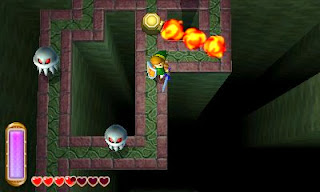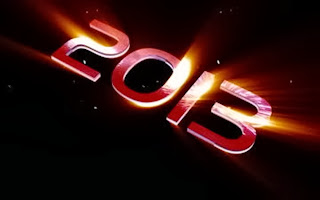 Opinion by Matt S.
Opinion by Matt S.
With 2013 drawing to a close, I came to start writing this piece by simply sitting back and reflecting back on some of what has happened this year.
It is nearly inconceivable just how much has happened to the games industry this year. Sony and Microsoft both released new console hardware (finally), and that’s perhaps the most obvious development of the year, but it’s not what I thought of when I reflected on 2013. There were many other developments in game hardware this year that are as worth noting as both the PlayStation 4 and Xbox One.
This year saw the release of the Ouya Android console for instance, and while the future of that device is uncertain, it did herald something that will become very important in the years ahead; the idea of three monolithic consoles that dominate the lounge room is coming to the close. Sony, Microsoft and Nintendo might remain the big three, but people will be more willing to buy smaller consoles like the Ouya, or the Steambox, and other devices to supplement their gaming setups, and those smaller consoles will become a breeding ground for independent and arthouse games.
Also in hardware, we saw the first firm steps towards unified controllers for mobile game platforms in 2013. Apple announced formal, native support for game controllers with its iOS 7.0, and while we’ve only seen small-scale uses of that capability to date, it’s only a matter of time before a high-profile hardware manufacturer creates an iPad controller that gets a lot of support, and becomes a common place way to play iPad games. Samsung got in on the action too, announcing late in the year that it has developed a game controller and platform for its Android-based devices.
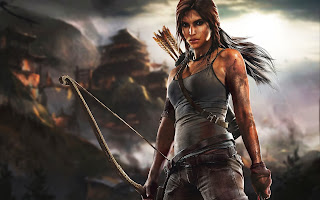
Yes, 2013 was an exciting year from a hardware point of view, and while 2014 won’t see any new major console releases, the consolidation of the PlayStation 4 and Xbox One, as well as the (I hope) turnaround of the Wii U and the continued development of the micro consoles and mobile hardware will mean that 2014 will be an equally exciting year from a hardware point of view.
The Games
I mentioned the emergence of microconsoles and the potential of those devices to encourage arthouse game development. In 2013 we also saw a huge push from Sony, and to a lesser extent Nintendo to engage with these “smaller” experiences, and as a result, as someone that prefers unique experiences to blockbuster AAA-games, I had a great year with my consoles. Titles such as Rain and Contrast, and Knytt Underground on the Wii U, have real artistic merit and suggest to me a positive trend that I hope will continue in the years to come; an alternative to the repetitive themes that we see in blockbuster games.
That’s not to say the blockbuster games that we saw in 2013 were poor quality by any means. From The Last Of Us to Tomb Raider, Bioshock Infinite, Assassin’s Creed IV and Grand Theft Auto V, 2013 saw out the last generation of console hardware in style with some of the finest action experiences we’ve ever seen.
And as someone who enjoys Japanese games, I couldn’t be happier with the output of studios in 2013. The year kicked off with one of the finest JRPGs ever made in Ni No Kuni, and the standard of these releases remained constant for the rest of the year. From the really Otaku (Hyperdimension Neptunia Victory) to the highly experimental (Time and Eternity), the most mature and rich Atelier game to date (Atelier Ayesha), and a Vita port of the finest Atelier game ever made (Meruru), it seemed that every month JRPG fans had a new, meaty game to get stuck into. Then the year finished off with another genuine 5-star game; The Guided Fate Paradox, which is the finest roguelike I’ve ever played.
Nintendo had a great year in terms of the quality of its releases on the Wii U, even if the console itself failed to ignite the sales charts. The first couple of months of 2013 were slow, but then Pikmin 3 happened, and the console had a steady year from that point, with a HD remake of one of the most well-regarded Zelda titles (Wind Waker HD), a brilliant new Mario title (Super Mario 3D World), and while the third party support was limited, what there was was good value; both Disney Infinity and Deus Ex: Human Revolution played best on Nintendo’s beleaguered console.
With all of that said the real highlight of 2013 for me was the handheld consoles. The 3DS finally came right into its own for me, with the likes of Fire Emblem: Awakening, Mario & Luigi Dream Team Bros, The Legend Of Zelda: A Link Between Worlds, Etrian Odyssey IV, Pokemon X & Y, Bravely Default: Flying Fairy and then experimental stuff like Attack of the Friday Monsters all kept my device in heavy use throughout the year. While the console has always been essential, the release schedule for it in 2013 was truly unbelievable.
But the Vita, which, like the Wii U has struggled to find a place in people’s homes, also had a stellar year of software. The ports of both Atelier Totori and Atelier Meruru, together with Persona 4 Golden, Rainbow Moon, Soul Sacrifice and Ragnarok Odyssey turned the console into a JRPG powerhouse in its own right. This was supported by a constant stream of quality independent releases, and as far as I’m concerned The Vita has become the most underrated console this generation, if not ever.
And Now, The Bad
For all the great that we’ve seen in 2013, there’s been stuff that’s happened this year that has been truly disappointing. Chief among this has been the sheer number of talented developers that have shut up shop, or struggled to remain financially stable. Junction Point was the first casualty this year, and Rune Factory developer Neverland one of the Christmas casualties. Atlus’ parent company, Index Holdings, also filed for bankruptcy, but thankfully that one was saved by SEGA. What’s frightening about these failed developers is that it’s been a single game that has sunk them, and in the case of Neverland, it was a single hugely successful game that still wasn’t enough to save the company.
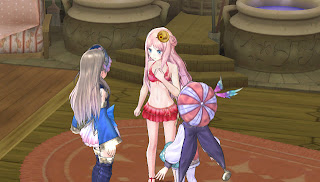
None of this bodes well for gamers – especially gamers that like the work of a specific developer – when no developer is safe from the current expectations of the market.
Speaking further on the attitudes of the gaming consumers, I also found the attitude of entitlement among certain sections of the community to be painful in 2013. From sending death threats to game developers that do things that they don’t like, to trolling around the Internet to harass anyone who has different attitudes towards games as they do (as just about every feminist has experienced this year), to voting EA as the worst company of the year (over corrupt banks and manufacturers of guns and cigarettes) because EA makes games that they don’t like, the toxic elements of the games community is vocal and a direct challenge to genuine progress within games industry.

Finally, I would be remiss if I didn’t register my sheer disappointment that in the AAA-game space developers and publishers displayed less creativity than ever before in 2013. Tomb Raider and The Last Of Us may have had very different narratives, but both games played out using the same template; cut scene, a “room” filled with enemies that need to be taken out, and then a corridor to the next cut scene. Rinse and repeat and apply to just about every blockbuster game released this year. I believe the games industry should be a creative one, and creativity is being stifled in order to appeal to a lowest denominator that I don’t think truly appreciates games at all.
Given that the next generation of consoles seems set to make the open world game the standard for AAA-games, this brain drain of creativity looks set to continue in the AAA space in 2014. Thank goodness for indies and Kickstarter and things, then.
Looking To 2014
The toxic community aside, 2014 is going to be a fascinating year for games. I’m especially keen to see how the art game community continues to evolve, and whether it will be able to continue to count on the support of the big publishers to ensure that there is a full range of experiences available on their platforms.
With the growth of the games industry, that variety of game experience will be critical to continue to pull in new fans, and my great hope is that the third party game publishers such as Activision, EA, and Ubisoft, start to pick up that there is an audience for these experiences and that such games are worth investing in.
My Personal Ten Games Of The Year
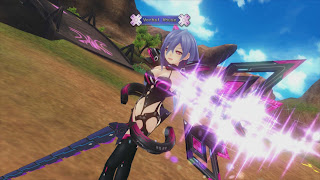
Be sure to let us know what your favourite games of the year were!
Atelier Ayesha; It was always going to be tough to follow up on Atelier Meruru, which has got to be my favourite JRPG ever, but Ayesha performed admirably to kickstart a new GUST trilogy that has me waiting with baited breath for the next game, due for release early in 2014.
Atelier Meruru Plus; Speaking of Meruru, she arrived on the Vita in 2013 in style. Having my favourite JRPG ever in portable form has rocketed the value of my Vita purchase in my estimation.
Hyperdimension Neptunia Victory; This franchise has always amused me, but for all its charm it’s impossibly to claim it’s an especially great JRPG in terms of its mechanics. Hyperdimension Neptunia V is the closest this franchise has come to offering great mechanics to go with the insane and entertaining narrative.

Killer Is Dead; Goichi Suda will forever be a controversial fellow, and I hope he never changes. Killer Is Dead was accused of all kinds of things on the way to its horrible scores, but I found it to be a wonderfully surreal, transgressive experience.
Ni No Kuni; If Studio Ghibli is involved in a game then I am immediately interested. Ni No Kuni is a work of art, backed by a really charming action JRPG formula that throws in a bit of Pokemon-style monster collecting, because Level-5 was well aware of where the real draw of this game was.
Europa Universalis IV; Strategy games don’t get better than this one. Europa Universalis is a deep, rich and rewarding experience that requires real skill to master, and genuine strategy to outperform both AI and human opposition.
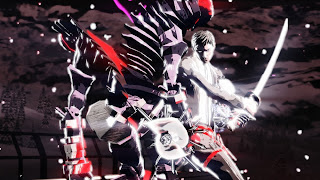
Contrast; Contrast is something special; a puzzle platformer that constantly messes with player expectations. Where it really stood out was in the narrative and thematic richness of the game, making it will worth replaying just to make sure you haven’t missed anything.
Rain; Last but certainly not least was Rain; a mix of puzzler and survival horror that is a wholly unique and refreshing experience. Sure it’s a little melancholic, which means it’s not the out-and-out “fun” that many expect from their games, but when a game is this rewarding, that doesn’t matter.
It has been a great year for games indeed.
– Matt S.
Editor-in-Chief
Find me on Twitter: @digitallydownld

